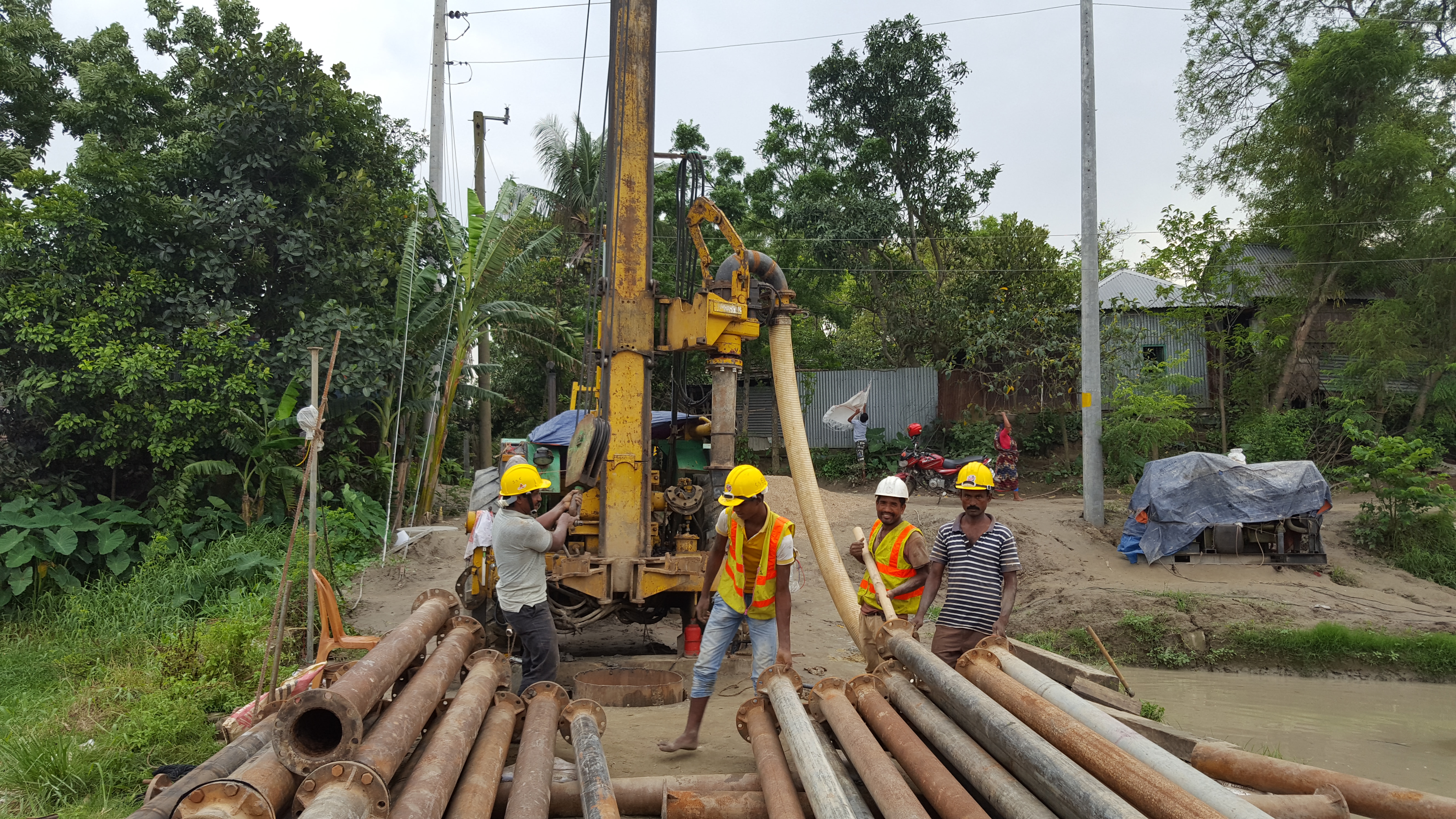The capital’s water supplier has now set September as the new deadline for supplying groundwater from Tetuljhora-Bhakurta (phase 1) well field to Mirpur. The Dhaka WASA (DWASA) had earlier missed the timeline twice, an official said. DWASA managing director Taqsem A Khan said the Japanese subcontractor had difficulty in doing microtunnelling under the Turag river bed. The firm is doing the work afresh, he told the FE on Thursday. “There was a technical glitch in doing the micro-tunnelling under the Turag. So, we failed to supply water in March 2018,” he said. Mr Khan said the Japanese firm was supposed to finish the task to ensure water supply by this June. “Now, we are setting September the fresh target when we hope to start supplying water,” he added. The DWASA was due to supply 150 million litres of water to greater Mirpur daily from the TetuljhoraBhakurta Well Field Construction Project. The plant, located at Savar sub-district under Dhaka, aims to address water crisis at Mirpur in dry season. Water supply from the reservoir was expected to start from March to feed 1.5 million people. It covers Mazar Road, Ahmadnagar, Uttar and Dakkhin Bishil, Rupnagar, Monipur, Senpara, Mirpur sections 1, 2, 6, 7, 10, 11, 12, Pallabi and Mirpur DOHS. Mr Khan held a press briefing at the site office at Taranagar last November. The Tk 5.73-billion project set sail on May 21, 2015. The Exim Bank of Korea and Government Agency for Economic Development Cooperation Fund has been providing Tk 3.63 billion. The Bangladesh government is providing Tk 2.0 billion and the DWASA Tk 100 million to this end. South Korean Hyundai Rotem is implementing the project with two consultants HEC Sung Ji Engineering and Institute of Water Modelling (IWM). Mr Taqsem said the project duration will not be extended as there is enough time until this December. At the November briefing, he claimed that 71 per cent work on the well field construction was completed. The overall progress was 75 per cent, including land acquisition and customs clearance, he said. Major project components include 46 deep tube wells, two iron removal plants (75,000 m3/day each), surface reservoir (8160 m3), chlorination plant, office building, transmission and distribution pipeline. Work on the installation of pipeline in 39 out of 42 kilometres has so far been finished. The Aminbazar river-crossing work began on October 17, 2017, and was due for completion this January. The Chaira Bridge crossing work was supposed to start in November 2017 and end by February 2018. At that time, Mr Taqsem said the Tetuljhora-Bhakurta aquifer is 250 metres deep and the water reserve will not deplete in 30-40 years.
The source of water of this reservoir is at the Himalayas. The DWASA and IWM explored it in 2007. The DWASA got the study report in 2009. The construction of the present well field with a 7.71-hectare area is part of the 2009 master plan. The DWASA planned to extract 60 per cent water of the reservoir for 40 years, he added. There is another reservoir at Singair of Savar where a well field will be constructed in second phase. Another 150 million litres will be supplied from the plant. The DWASA now supplies 450 million litres to Mirpur through 92 deep tube wells in zone four and 73 deep tube wells in zone 10. Dhaka gets a total of 2.40 billion litres of water from DWASA daily. Of the total water, about 75 per cent is extracted underground and 25 per cent is surface water. By the year 2021, 70 per cent will be surface water and 30 per cent groundwater, WASA sources said.


